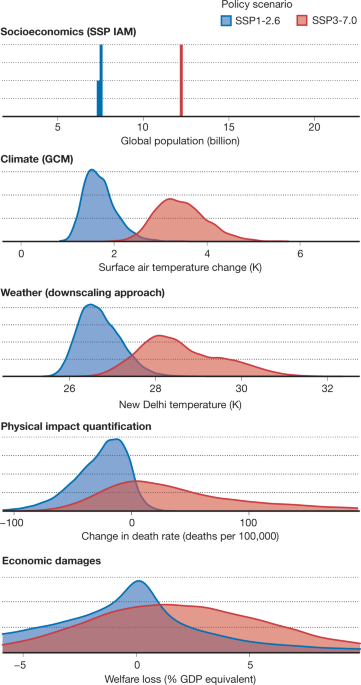“The interplay within and between different physical and social systems … are often only poorly understood. This leads to large and growing uncertainty estimates and a wide range of incompletely understood and underestimated risks. For example, the potential for climate change impacts to drive social discontent, dislocation and relocation, and instability and conflict, are all deeply uncertain, but potentially crippling.”

I wonder at which point economists admit they are just guessing most of the time.

I’ve been around the insurance industry my entire life. My father was an incredibly successful insurance agent making six figures for over 25 years. I’ve been listening to my father talk about climate change with his colleagues for, roughly, 20 years.
In short, there is a tremendous amount of money at stake with various types of property insurance. This is, especially, so with properties located at oceanic coastlines. Globally, the amount of money could approach trillions of dollars.
Thus, the entire property insurance world have had economists working every angle for decades now. Do you know the saying: “The casino always wins”? From what I’ve seen/heard inside the insurance agencies, they are going to make a fortune from the devastation caused by the effects of climate change.

Thus, the entire property insurance world have had economists working every angle for decades now. Do you know the saying: “The casino always wins”? From what I’ve seen/heard inside the insurance agencies, they are going to make a fortune from the devastation caused by the effects of climate change.
Fucking insurance industry scam. I would love to see it banned. Anyway, that is why sometimes I think not a “democracy” but only something like China would be able to enforce such a change (I know they won’t really do that because economy/capitalism…). US the worst of all this; the heart of capitalism.

Insurance, especially for rare stuff like 'Your home burned down" is a useful thing. It’s kinda exploititive if multi-million dollar beach rental homes get to cash out frequently while rates for everyone else skyrocket though.
It’s hard to draw a clear line, but I feel like at a certain point beachfront properties will need to kinda be phased out. Would be kinda nice for beaches to be less like amusement parks and more like national parks.
All insurance companies should be member cooperatives or nonprofits, if not just a direct government function.

only something like China would be able to enforce such a change
Why China?

they have the means and are not afraid to take the capitalists down. they have take down exploitative industries already, like the private lectures industry, crypto, jailed for many years some capitalists, and so on… but of course they will not do that to an extent to destroy their own economy; that would not help them to achieve 1st place superpower taking US position.
The vast majority of economists and analysts are doing a good job imo. They know that each model has its limits, and they clearly say that in their papers.
I feel the problems often arise after the research gets published and an armada of interest groups are trying to “interpret” the results according to their needs and wants. We frequently see lobbyists picking and choosing only the details that support their views, politicians seeking simple and quick solutions to complex long-term issues, and journalists and “bloggers” quoting studies without reading them.

